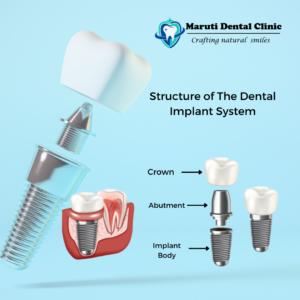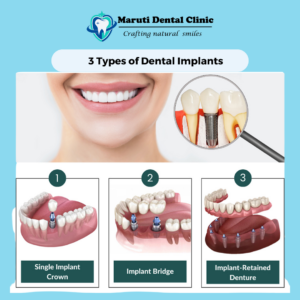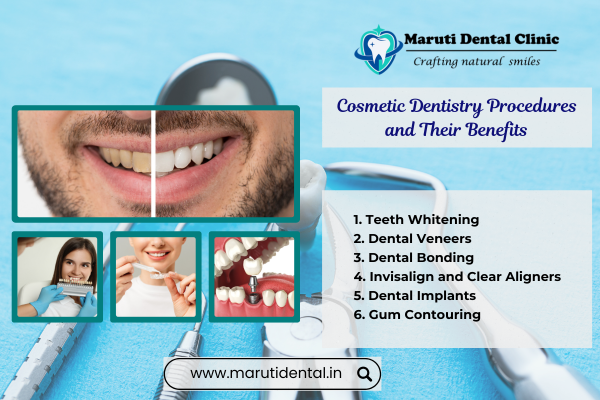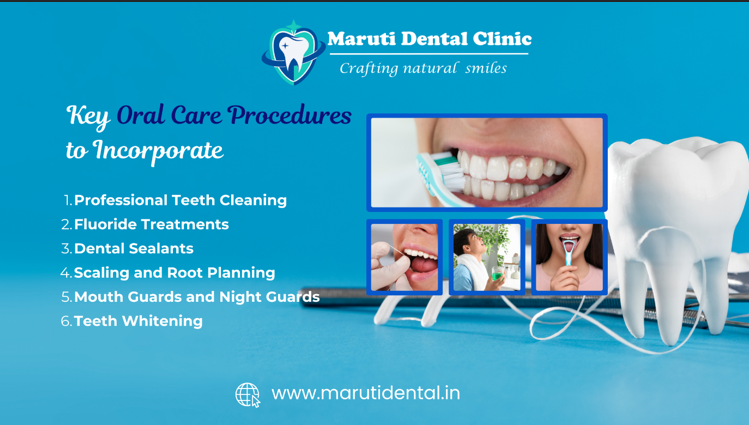Losing a tooth can be a distressing experience, affecting not just your smile but also your oral health and self-confidence. Fortunately, dental implants offer a reliable and long-lasting solution to restore missing teeth. Whether you have lost a single tooth, multiple teeth, or require a full-mouth restoration, dental implants provide a natural-looking and functional replacement. In this blog, we will discuss the benefits of dental implants, their types, procedure, cost, and frequently asked questions.
What Are Dental Implants?
Dental implants are artificial tooth roots made of titanium that are surgically placed into the jawbone. They act as a strong foundation for fixed or removable replacement teeth, mimicking the natural tooth structure. Unlike dentures or bridges, implants integrate with the jawbone, preventing bone loss and offering a permanent solution for missing teeth.
Why Choose Dental Implants?
Here are some compelling reasons why dental implants are considered the best solution for missing teeth:
- Natural Appearance: Implants look and feel like real teeth, seamlessly blending with your natural smile.
- Durability: With proper care, dental implants can last a lifetime.
- Improved Chewing and Speech: Unlike removable dentures, implants provide stability, allowing you to eat and speak comfortably.
- Prevents Bone Loss: Dental implants stimulate the jawbone, preventing bone deterioration.
- No Damage to Adjacent Teeth: Unlike dental bridges, implants do not rely on neighbouring teeth for support, preserving their integrity.
- Boosts Confidence: A complete smile enhances self-esteem and overall quality of life.
Structure of Dental Implants
Dental implants are artificial tooth roots designed to provide a strong foundation for replacement teeth. They consist of three main components:

- Implant Fixture (Titanium Post)
The implant fixture is a screw-like post made of biocompatible titanium, which is surgically inserted into the jawbone. Over time, it undergoes osseointegration, fusing with the bone to create a stable anchor for the artificial tooth. - Abutment
The abutment is a small connector placed on top of the implant fixture. It extends above the gum line and serves as a link between the implant and the prosthetic tooth. Abutments can be made from titanium, zirconia, or stainless steel. - Prosthetic Crown
The crown is the visible part of the implant that resembles a natural tooth. Made of ceramic, porcelain fused-to-metals or zirconia, it is adapted to match the color, size and shape of the surrounding teeth for a natural appearance.
Together, these components restore the function and aesthetics, making dental implants into durable and long -lasting teeth replacement options. With proper care, they can stay for decades improving chewing ability, speech and general oral health.
What Are the Three Types of Dental Implants?

The dental implant comes in different types based on placements and functionality. There are three main types:
- Endosseus Implants: The most commonly used implants. These mimic the natural roots of the teeth. Endosseus implants can be classified into two types, depending on the mode of insertion in the jaw bone i.e.crestal implants and lateral basal implants.
- Subperiosteal Implants: These implants are inserted above the jawbone and below the periosteum.
- Zygomatic Implants: The least common type, these implants are anchored in the cheekbone (zygoma) instead of the jawbone, used for patients with severe bone loss.
The Procedure for Dental Implants
The dental implant procedure involves multiple steps and requires several months for completion. Below is a step-by-step breakdown:
The dental implant process includes several stages and requires several months to complete. A step by step is broken down:
- Initial consultation and evaluation
Your dentist will evaluate your oral health, take x -rays and find out if you have enough bone density to support a transplant. If necessary, bone grafting may be recommended.
- Implant Placement Surgery
During this process, the dentist holds the surgical titanium transplant in the jaw. This is done during local anesthesia to reduce discomfort.
- Healing and Osseointegration
Over the next 3-6 months, the implant fuses with a jaw bone in a process called osseointegration, which ensures a strong foundation for artificial tooth.
- Abutment Placement
When the implant is integrated with the bone, an abutment is placed to hold the crown in place.
- Crown Placement
A custom-made crown, designed to match the color and shape of your natural teeth, is attached to the abutment and completes the restoration.
How Long Do Dental Implants Last?
Dental implants are designed to be a permanent solution for missing teeth. With proper oral hygiene and regular dental check-ups, they can last 20 to 30 years or even a lifetime. The durability of the implant depends on factors such as:
- Good oral hygiene habits (brushing, dental floss and regular dental trips)
- Avoid smoking, which may increase the risk of implant failure
- To eat a healthy diet that supports the health of bones and gums
- Protect teeth from excessive force (eg: using an oral guard if you grind your teeth)
Is a Dental Implant Painful?
One of the most common concerns patients have , whether getting a dental implant is painful. The procedure itself is performed under local anesthesia, ensuring that you feel little to no pain during surgery. Some post-operative discomfort, including mild swelling, soreness, or bruising, is normal and can be managed with pain relievers prescribed by your dentist. Most patients find less discomfort than expected, reporting that it is comparable to a tooth extraction.
Cost of Dental Implants
The cost of dental implants varies based on factors such as location, complexity, materials used, and the dentist’s expertise. On average:
- Single Tooth Implant: Rs. 20,000 – 40,000
- Implant-Supported Bridge: Rs. 60,000 – 80,000
- Full-Mouth Implants: Rs. 2,00,000 – 4,00,000
While dental implants may seem costly, they are a long-term investment in oral health, eliminating the need for frequent repairs or replacements required with traditional dentures or bridges.
Conclusion:
Dental implants are undoubtedly the best permanent solution for missing teeth, offering unmatched durability, functionality, and aesthetic appeal. With proper care, they can last a lifetime, improving both oral health and self-confidence. If you are considering dental implants, then contact us to explore the best options for restoring your smile.
A confident smile starts with strong, healthy teeth. Consider dental implants today and enjoy a lifetime of benefits!



